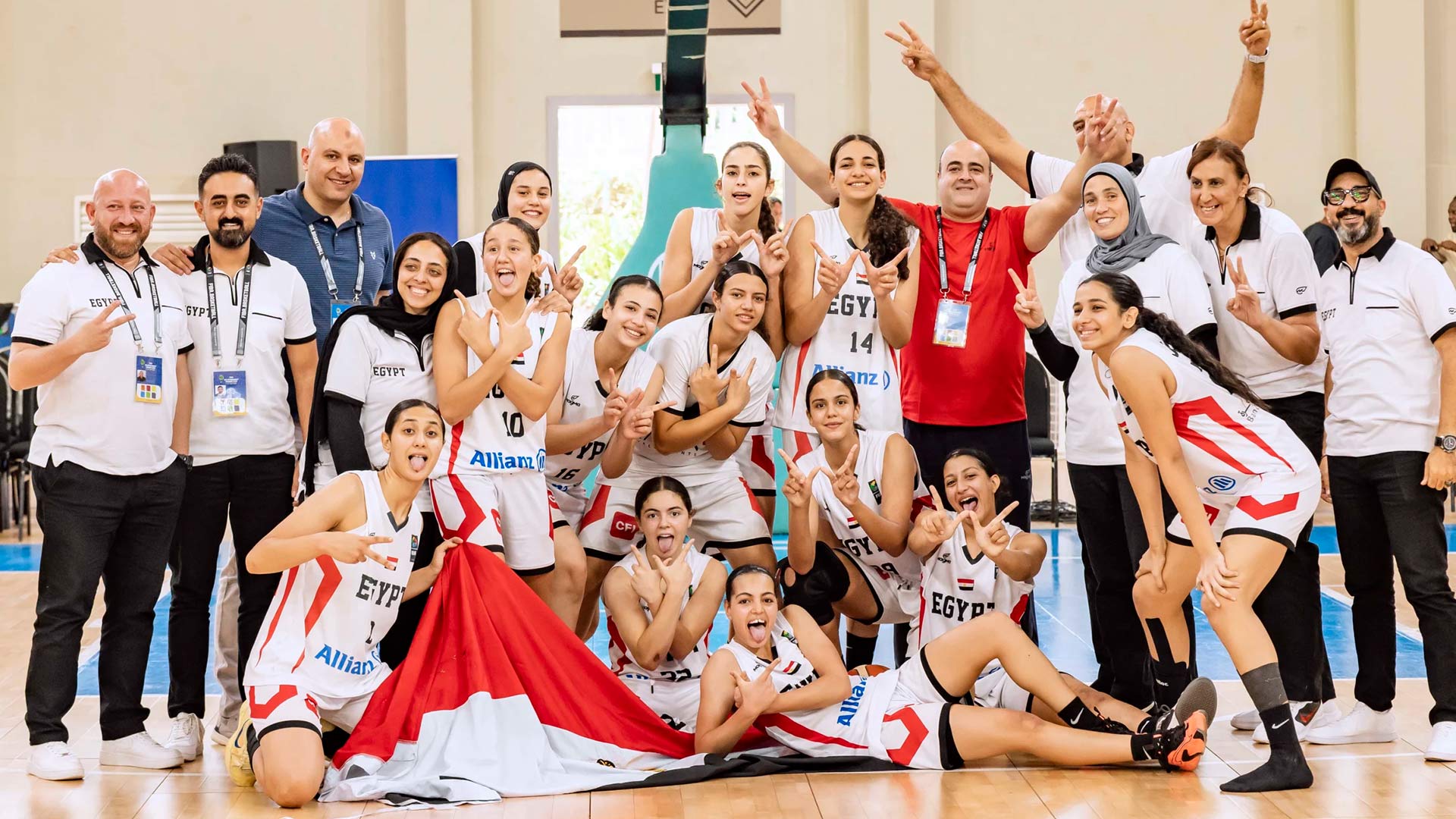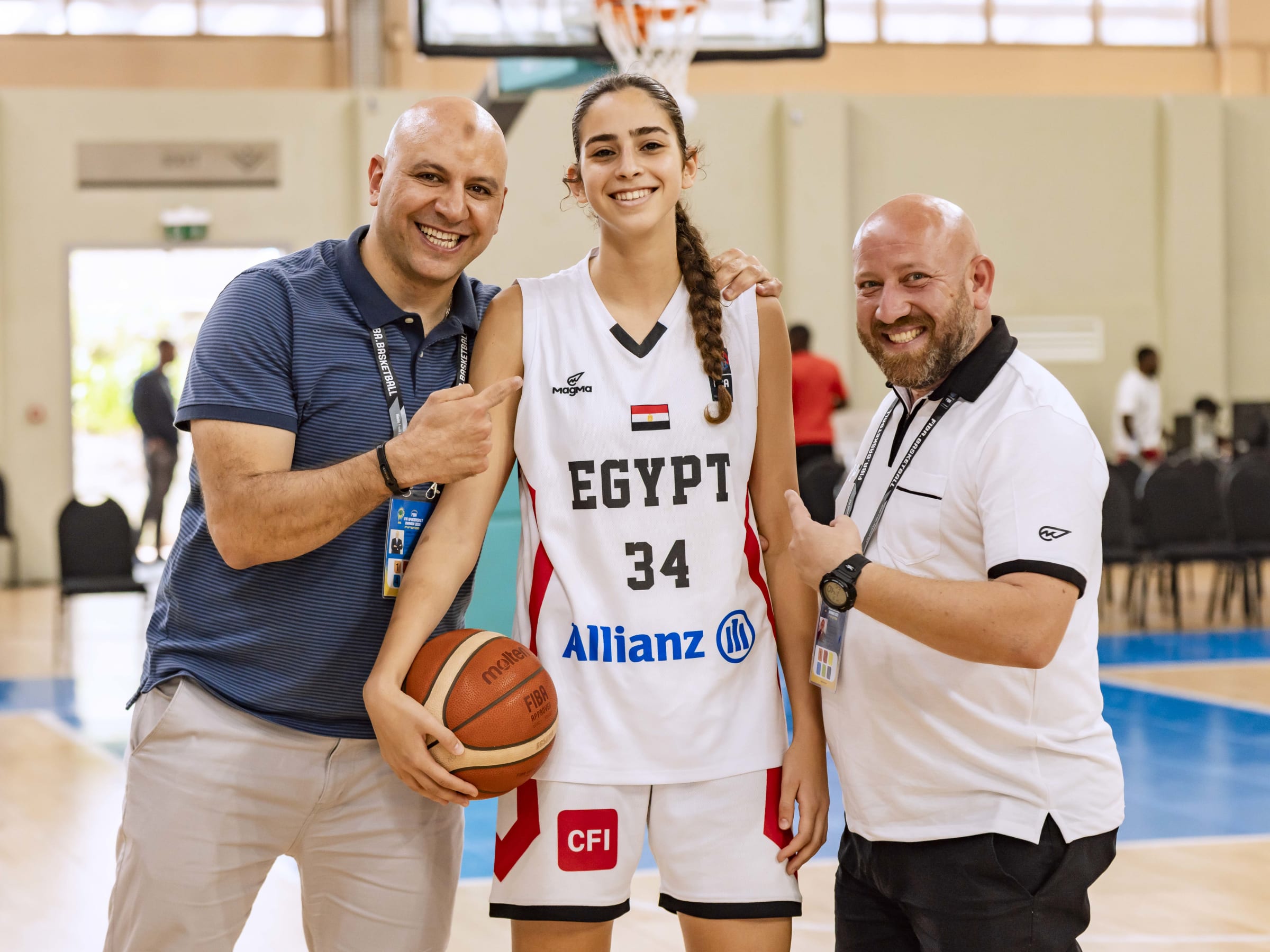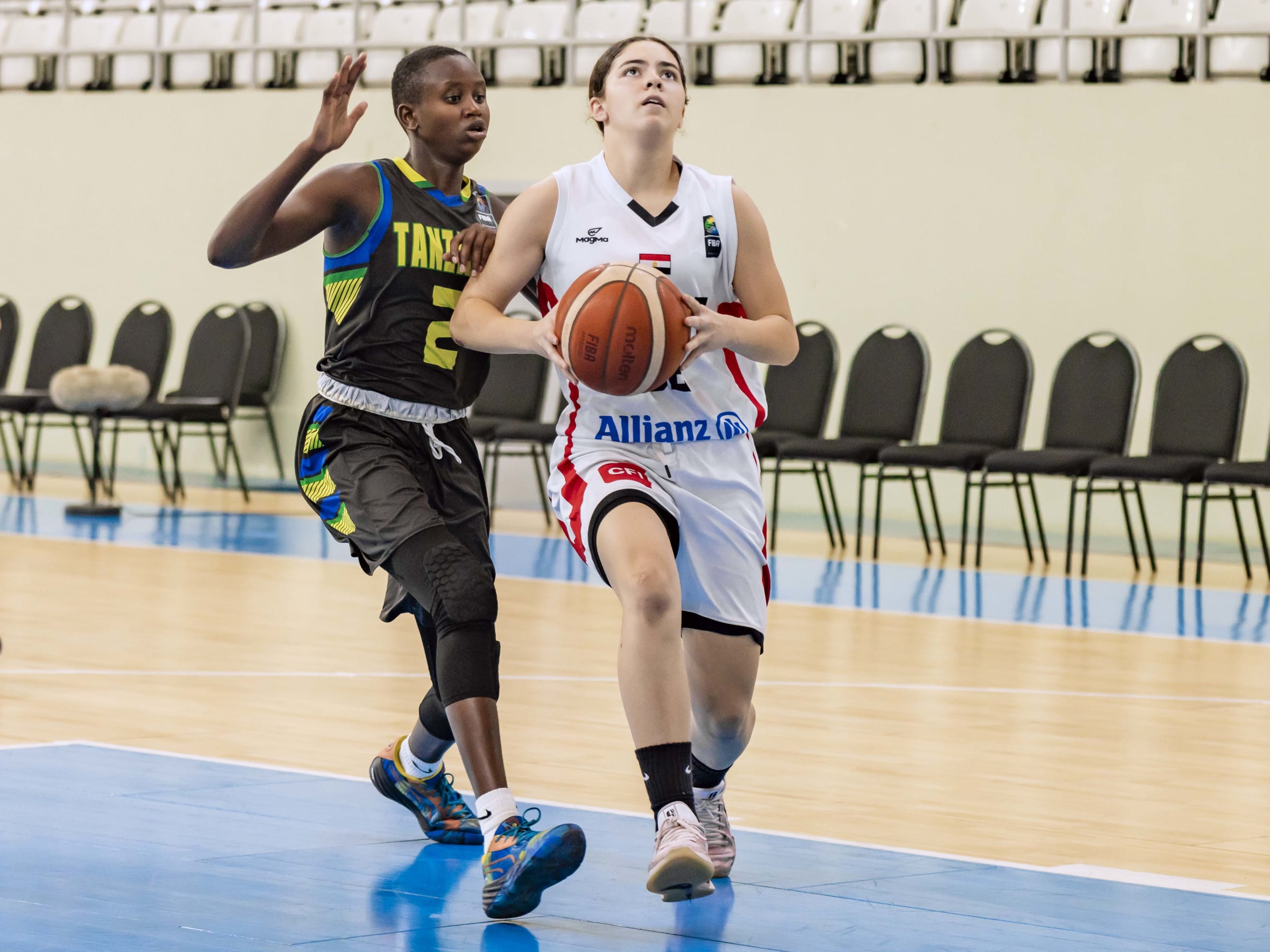Egypt routed Tanzania 83–25 to reach the FIBA U16 Women’s AfroBasket semifinals for a fifth consecutive time. The Pharaohs impressed with depth and defense, but inconsistent three-point shooting remains their biggest concern as they chase continental glory.
Last Updated on
September 11, 2025


Egypt once again proved their dominance on the continental stage, dismantling Tanzania 83–25 on Thursday to seal their place in the FIBA U16 Women’s AfroBasket semifinals for the fifth straight edition. The victory not only showcased Egypt’s depth and teamwork but also reaffirmed their credentials as perennial title contenders in this competition.
From the opening tip-off, Egypt wasted no time stamping their authority on the game. An early 7-0 run gave the Pharaohs momentum and crushed any hopes Tanzania had of establishing a rhythm. Rose Katamboy briefly lifted Tanzanian spirits with a three-pointer that narrowed the deficit to 7–3, but that was as close as her side came to challenging Egypt’s supremacy. By the end of the first quarter, the scoreboard read 17–7 in favor of the Egyptians, setting the tone for what would soon become a one-sided encounter.
Egypt’s superiority became even clearer in the second quarter, where they extended their lead to 42–12 at halftime. Their defensive intensity left Tanzania struggling to find clean looks, while their relentless attacks in the paint produced a steady stream of points. Outscoring Tanzania 21–9 in the third quarter and 20–4 in the final period, Egypt demonstrated they were not content with just winning—they wanted to dominate every possession.

The numbers underline the gulf between the two teams. Egypt outrebounded Tanzania 72–50, scored 50 points in the paint, and ruthlessly capitalized on turnovers with 39 points generated from Tanzanian mistakes. Their bench also made a considerable impact, contributing 40 points, which highlighted the squad’s depth and balance.
While the victory was a collective effort, several Egyptian players delivered standout performances. Zeina Amin was particularly impressive, scoring 13 points in just over 15 minutes while falling one rebound short of a double-double. Dana Abdala and Fatma Abdella each chipped in with 10 points and eight rebounds, showing the Pharaohs had multiple scoring options capable of stepping up.
On the other side, Katamboy was Tanzania’s lone bright spot, scoring 15 of her team’s 25 points. Unfortunately, her high turnover count—15 giveaways—prevented her from turning her effort into anything more than a personal highlight.
Despite their dominant win, Egypt’s performance was not flawless. Shooting from distance remains a concern for coach Mohamed Abdelrahman’s side. Against Morocco in their final group game, they converted just 12 of 37 three-point attempts. Against Tanzania, the numbers dipped further, with only 8 of 44 long-range shots finding the target. Free throws were also problematic, as they made only 7 of 17.
Coach Abdelrahman acknowledged these shortcomings after the game:
We’re qualified for the semis, and it will be something else. But I’ll be careful about this game because we played the day before. I also noticed that we were not doing good from behind the three-point line. This is something we’re going to work on.”
Star guard Zeina Amin echoed the coach’s sentiments, emphasizing the importance of teamwork while pointing to areas that need sharpening.
“I feel that the entire team is ready for this experience. We’re all ready, we’re playing together. I think this is one of the main reasons we keep winning. However, we need to work more on our long-range shots.”
Beating Tanzania by 58 points secured Egypt’s eighth semifinal appearance in the last nine editions of the tournament, a remarkable record of consistency. The Pharaohs remain one of the heavyweights of African women’s youth basketball. Still, their ability to fix shooting inefficiencies will likely determine how far they can go in this year’s competition.
For Tanzania, the match underlined both their determination and their limitations. While Katamboy’s spirited play was admirable, the gap in quality and experience between the two teams was undeniable.
[Photography Courtesy of FIBA]